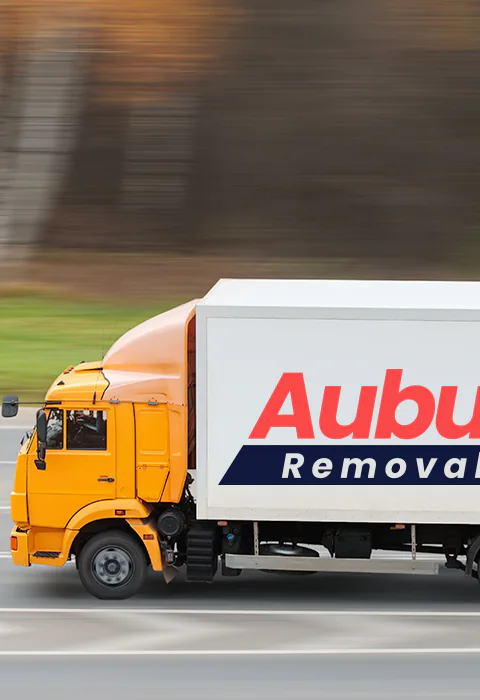You used your moving checklist to organise and plan a smooth relocation. You’ve safely arrived at your new house and can not wait to recognise the beginning of this beautiful period in your life. After all, it’s rare that you get to plan a flawless relocation with no significant hitches along the way, much alone move into a large and gorgeous home. You have every right to feel pleased with yourself.
Regrettably, it’s far too soon to crack open the bottles of champagne you’ve been saving for rare occasions like this one and grandly toast the relocation’s accomplishment. Still, plenty of critical work needs to be done throughout your new home – a slew of urgent activities that can’t wait. Yes, there will come a moment for well-deserved festivities, but it’s time to roll up your sleeves again and get to work.

1. Examine Delivered Boxes
Examine the moving boxes as they are moved into your new house. We have the property inventory you produced or received throughout the relocation, correct? Check every packing box against the thorough list as it is taken into your new place. If a box or a household appliance goes missing, tell the moving staff immediately and check jointly to see whether it was accidentally left in the moving truck.
After the movers have left, check each packing container for any damage or evidence of evident maltreatment. If you discover broken or damaged goods, make a note of the exact damage in your inventory list and call the moving company to try to address the situation amicably. If you choose reputable and trustworthy movers, the disagreement should be handled promptly in your favour. If the moving firm decides to play stupid, you can use your consumer rights and file a complaint against them.
2. Get Your Utility Working
You should have connected the main home utilities before the relocation, but if you haven’t done so for any reason, do it now. Naturally, the first utility firms to contact are the power and water companies – things will appear a lot brighter and smoother once you have electricity, gas, and running water in your new home.
After you’ve taken care of the essentials, consider preparing to acquire access to the Internet, phone, and other vital services.
3. Remove the Essentials
Contact your removalist for assistance if you’re having problems reassembling your bed. Continue unpacking your essential boxes and preparing the two most vital rooms for regular usage – the bedroom and the bathroom. Moving days tend to sap people’s vitality, so you’ll need a spot to rest your tired body after the most stressful day. Assemble your bed (if required), unpack the “Bedding” package, and prepare your bed for pleasant dreams.
Nevertheless, before you call it a day, you’ll need to take a relaxing shower, so delve into the “Bathroom” container and pull out the shower curtains, towels, your favourite bathrobe, and all the items you’ll need to wash away the stress and filth of moving day.
Of course, unpacking and organising the kitchen is a priority, but it can wait a few days until you’re back.

4. Organize Yourself
Get the most out of your post-move time by making and keeping a detailed to-do list.
You must make time to prioritise your post-move time. Take a notebook and begin writing down all the urgent things you will need to complete in the following days, if not weeks. This focused to-do list will jump-start the rapid process of settling in your new house and your smooth acclimation to the unexpected surroundings, just as the moving calendar helped you enjoy a stress-free and trouble-free move.
5. Thoroughly inspect your home
If you observe any unpleasant indicators of a pest infestation, try to solve the problem first and then call a pest control professional if your efforts fail.
One of the first things to do when moving into a new home is to familiarise yourself with your surroundings. Locate your favourite magnifying glass and thoroughly and lovingly scrutinise every nook and crevice of your new house as if you were James Bond.
Examine each room for evidence of damage, particularly from water or fire. Examine the plumbing system for leaks, leaky faucets, and running toilets.
Furthermore, search your front yard, backyard, and the perimeter of your property for any unpleasant issues and take the required steps to eradicate them.

6. Find the Fuse Box and the Main Water Valve
You’ll need the assistance of another individual to identify the fuse (get ready for load shouts back and forth). Take the time to learn where your circuit breaker box and main water valve are in an emergency or if you’re ready to remedy a power or water issue and need to switch off the power or shut off the water supply.
If the fuses are not labelled at all or if the man before you did it all wrong, you must know which fuse controls which portion of your new house. Identify and mark each circuit breaker. Similarly, please familiarise yourself with how the main water stop valve works and check to see whether it is working correctly by looking for any flowing water after the valve has been shut off. If it’s not operating correctly, replace it or get it replaced.

7. Protect Your New Residence
Make every effort to offer a safe atmosphere for you and your family.
After the connections have been linked, the house has been examined for faults, and the emergency centres have been established, it is time to protect your new home from unlawful access or natural disasters.
Replace the latches on all exterior doors to guarantee that only you and your family can access your new house. Check all windows and doors to ensure they close securely. Install smoke alarms in each room. Each floor should have at least one working fire extinguisher. Get a couple of first-aid kits. Create an emergency escape plan for the house and make it known to all family members. Consult with a professional and consider installing a burglar alarm, especially if your property is in an area with a terrible reputation.

8. Childproof Your New Residence
A healthy baby is a happy baby, and happy parents are happy babies. If you have moved into a new home with a newborn or toddler, your home will need to go one step above standard household security, known as childproofing. This safety step, often known as baby-proofing, is more of a set of stages – a complete procedure that includes timely detection of all domestic threats that await your tiny child and their successful eradication.
Begin the childproofing procedure in the room where your newborn or toddler will spend most of their time – the nursery. Only your happy infant and the fitted mattress sheet should be left in the crib. Protect the changing table from accidental tip-overs by installing window guards, cordless shades on the windows, and electric outlet protectors on the walls.
Take your child to the bathroom and ensure that her bathtime is safe and pleasurable by taking all the needed precautions. The toilet, stairwell, and living area are just a few other rooms in your new house where things may go wrong for your baby or toddler.
9. Connect Large Appliances
Has your refrigerator been fixed if it isn’t chilling properly after the relocation, or if one of your other kitchen equipment needs to be fixed?
Now is the time to connect your refrigerator, freezer, washing machine, or dishwasher and complete the unpacking and installation of the most delectable room in your new house or apartment – the kitchen.
Refrigerators are the most delicate of the above-mentioned appliances, and special care should be used in their preparation and actual transportation. Like millions of others, you are undoubtedly curious about the answer to the question, “How long do you have to let a fridge sit after moving it?” You must keep your fridge upright in its final kitchen location for at least 3 hours before plugging it in and turning it on after relocation.

10. Keep Unpacking
Help from good friends is always appreciated, especially while packing and unpacking. Unpack the necessary boxes and organise the rooms that will be utilised the most. What about the remainder of your new home? The unpacking process will gradually expand to include your home’s living room, spare guest room, garage, basement, attic, and other storage locations.
11. Reuse Packaging Materials
Demonstrate your concern for the environment by properly recycling any packaging materials that you no longer require. Unpacking will leave you with a surplus of packing materials you may no longer want. Of course, some of the moving boxes you used throughout the transfer will be in such poor condition that you will have no choice but to recycle them. Others, on the other hand, will be excellent enough to withstand the stress of another relocation, and those you may retain for yourself, donate to friends in need or try to sell (but don’t expect enormous profit margins). House Movers Sydney team of Auburn removals use high-quality packing materials.
Aside from moving containers, other packing goods that may come in helpful during another move include bubble wrap and clean packing paper.

12. Keep Your Home Clean
Cleaning your new house, no matter how tiresome or unpleasant it may appear or sound, must be done at all costs. Without a doubt, unpacking will leave you with a mountain of trash, dust, and dirt. Aside from a celebratory toast, the end of the unpacking process coincides with the best time to fully clean your whole home.
Purchase high-quality cleaning supplies to transform your house or apartment into a clean and friendly environment. Everything should be dust-free, polished, and shiny: carpets should be vacuumed, floors should be wiped, reflecting surfaces should be pristine, and furniture should be sparkling and nicely organised.
13. Look After Your Pet’s Needs
If your pet appears sad, refuses to eat, or exhibits weird behaviour after your move, keep a careful eye on them. Both dogs and cats have a sophisticated sense of smell. They can generally detect remnants of other pets who may have previously resided in the house, prompting them to begin marking their territory. Aside from the territorial issue, your pet will likely have extra difficulties adjusting to the new surroundings.
Your dog or cat may develop abandonment issues. Keep an eye on your pet if they appear melancholy, refuse to eat, or display weird behaviour following a relocation. Keep your cat indoors for the first few days, ideally in a single room, but give all of the comforts they are accustomed to, including many objects from their previous life to keep them quiet. Slowly introduce your pet to your home, one room at a time, until they adjust to the unexpected sounds, sights, and scents. Take your dog on brief leashed walks around the neighbourhood to green areas for a quick and painful adaption.

14. Alter Your Address
It can be worth going down to the local post office to register in person, especially if your mail needs to be forwarded correctly.
It’s as obvious as a day (except for Moving Day!) that your new house comes with a new address. If you still need to register your current address with the post office online, you should do so immediately.
Furthermore, this is an excellent time to notify your friends and particular institutions of your new mailing address. The most straightforward approach to inform your friends about your new residence is to “leak” the information on your favourite social network. Post “I’ve moved!” along with your new address and all of your friends will congratulate you in a matter of minutes. Of course, you should notify banks, credit card companies, insurance companies, and other critical organisations of your recent address change.
15. Locate a Reputable School for Your Child
Remember that your child should be actively involved in searching for a good school. You must have completed this work well before the relocation. Still, you may have forgotten to do so (crazy moving preparations have this amnesia-like effect on individuals), or you might have had to conduct an emergency relocation with minimal time on the clock. If you have relocated to a new city, look for a reputable school and enrol your child as soon as possible.

16. Locate Health-Care Companies
It’s crucial to who you leave your most valuable possession, isn’t it? The answer is your health.
Finding the best healthcare providers for you and your family is crucial when moving into a new house in a new city. In actuality, the work is even more critical.
If you have strong references from your former healthcare practitioner, you should be OK. If you don’t, you’ll have to locate a doctor appropriate for you, your children, and your pets (if any). According to the procedure for choosing a good school, searching for a reliable primary care doctor, dentist, or veterinarian should commence online or, even better, through specific ideas and recommendations from coworkers or neighbours. Consider your unique medical needs (whether you need a primary care doctor or a specialist), the doctor’s knowledge, and temperament, and make your final selection after visiting the office in person.
17. Obtain Vehicle Registration
Inquire with DMV authorities about transferring your driver’s licence to your present state.
Moving to a new house in a different state necessitates registering your car and transferring your driver’s licence. To mark this duty as accomplished, go to your local DMV office and complete this formality before the deadline (some states give a window of 10 days to register your car, while others give as many as 30 days).
Prepare to produce evidence of insurance at the DMV office, since you must acquire insurance from the state to which you have recently migrated.
18. Examine Your Financial
Regrettably, you may have to tighten your belt for the next few months before your disposable income returns to normal. Once the relocation is complete, you should evaluate your present financial status. Did you go over your moving budget, or could you fit everything in? If your transfer cost you considerably more than you anticipated, it’s a good idea to become acquainted with these three key criteria for a reasonably priced relocation:
1. Knowing ahead of time how much the relocation will cost you,
2. Locating the most cost-effective expert movers, and
3. Make use of diverse strategies to reduce your relocation costs. Because you never know when another move will surprise you.
19. Decorate Your Home to Your Perfect Taste
Don’t forget about the practical aspect of home décor: before going to the furniture store, consider giving your precious furniture items a second life by restoring them to their former splendour.
Moving into a new home is an excellent opportunity to arrange and decorate your home exactly as you have always desired. Now is the time to awaken the skilled interior designer within you that has been asleep for years.
You are free to acquire new furniture and decorative objects, you may experiment with different colours and forms, and you are encouraged to experiment with various home décor techniques to create a quiet, soothing, and attractive ambience in your house. Add good soft lighting sources around your home to highlight its beauty. Add lovely containers of fresh flowers in strategic locations to double the good energy flow in your living area.
20. Welcome Your New Neighbors
Your neighbours may be nothing less than an indispensable handbook for that still-unfamiliar time of your life. When put in an unknown setting, everyone needs some direction. It will take some time for this peculiar sensation of unfamiliarity to fade in a new house, neighbourhood, city, and state. Until then, the thrilling possibility of meeting new people will help you get through the acclimation phase swiftly and smoothly.
Consider saying hello to the people next door even before you finish unloading. How are you doing? I’m your new next-door neighbour.” This initial introduction is not only a display of good manners, but it also allows you to meet locals who will assist you in learning your way about your new neighbourhood.
The practice has shown that assessing your moving company can help you on several levels. You will assist other citizens in selecting better movers, and that assistance will eventually come back to you if you need to relocate again. If you believe your movers abused you in any manner, your review might be used to settle a dispute. And by quickly recounting your relocation experience, you will give your moving happiness or discontent a voice. Call Auburn Removals for a No Drama Move! Visit our Facebook page to learn more about us.














